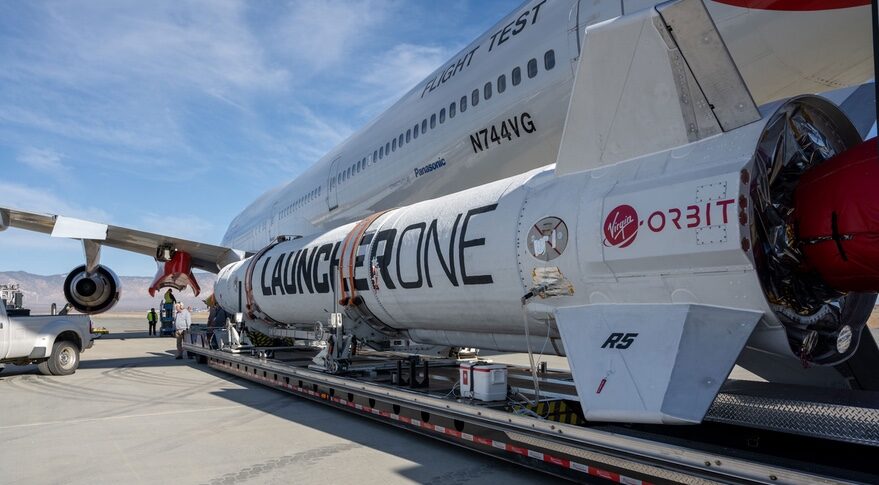WASHINGTON — Virgin Orbit now expects to perform four launches this year, at the low end of earlier projections, but with a higher per-launch revenue.
The company, in its second quarter earnings release Aug. 12, reported no revenue in the quarter and a net loss of $33.3 million. The company, though, said it recorded more than $12 million in revenue in its second launch of the year July 2, just after the end of the quarter. The company recognizes revenue at the time of launch.
The $12 million is significantly higher than previous launches, which averaged $2.5 million per launch. Upcoming launches, the company projected, will produce $6 million to $12 million of revenue per launch.
“You’re seeing a reaction of the market as we have steadily proven the technology and then gone into operations and demonstrated the reliability of the system,” said Dan Hart, chief executive of Virgin Orbit. “You’re also seeing that some customers have additional requirements and needs, oftentimes government payloads require some additional aspects of mission assurance or handling of their payloads.”
As Virgin Orbit’s LauncherOne system moved from development into operations, with four consecutive successful launches dating back to early 2021, the company is making improvements in launch operations. Hart said that on the most recent launch, the company reduced manufacturing labor hours for the rocket by 25% and time in launch operations by 9%.
“Fewer days in launch operations significantly reduces our overall launch costs and drives overhead efficiency, while increasing our launch responsiveness,” Hart said, adding that the company was “ahead of the planned learning curve” with those reductions.
However, its forecast for the number of launches in the year has shrunk. The company now projects conducting just four launches this year, down from the six the company planned at the beginning of the year and a range of four to six launches it forecast in June.
The next launch remains the first Virgin Orbit launch from outside the United States, at Spaceport Cornwall in England. The company, which previously expected that launch to take place in September, did not give a date for it in its earnings call, instead calling it only its “next launch.”
Hart said the LauncherOne rocket for that mission will leave the company’s Long Beach, California, factory in the next two weeks and go to the Mojave Air and Space Port for a launch rehearsal. He said Virgin Orbit is also working closely with the Civil Aviation Authority (CAA), the U.K. agency responsible for licensing launches. The CAA announced a public consultation on the proposed launch license July 22, scheduled to close Aug. 22.
“This is the first launch that they’ve ever done, and so we’re working very closely with them. It’s a new process and it takes a bit of time to go through it,” Hart said of the company’s interactions with the CAA. Other factors for the timing of the launch include the readiness of the payloads for the mission as well as required infrastructure at the launch site, a commercial airport.
After the Cornwall launch, Virgin Orbit expects to perform one more launch in the fourth quarter from Mojave, the site of its previous launches. The company did not disclose the customer for that launch.
Virgin Orbit ended the quarter with $122 million of cash on hand. That included raising $50 million through exercising part of a standby equity purchase agreement it announced in March with a hedge fund, Yorkville Advisors, to sell up to $250 million in equity over three years.
Brita O’Rear, Virgin Orbit’s chief financial officer, said the cash on hand should “provide sufficient near-term liquidity” for the company. “We will continue to be opportunistic in the capital markets.”

